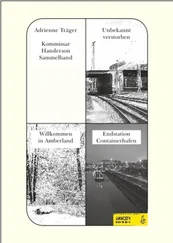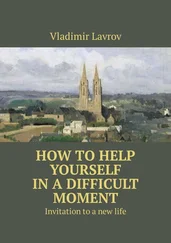2.
First: an apartment in Moscow, where my mother gave birth to me on the kitchen floor because she could not get to the hospital in time. Neighbor women, hearing her screams, ran in to help and turned the room into a grimly efficient medical theatre, with water boiling on the stove and sterilized cooking forceps at the ready. They coached her, offering bits of crushed ice, shoulder massages, compliments. “ Otlichno, krasavitsa! ” the women cried, and then they peeked between her legs and decided it was time to push, counting up to the moment of crisis. “ Raz! Dva! Tri! ” Most of them had been through the same thing themselves, and when my head emerged the oldest woman gripped it firmly with the forceps and tugged. She showed no hesitation, and sometimes when I’m over-tired I still rub the small indentations she made behind my ears.
My father, offering around vodka we couldn’t afford and rolling cigarette after cigarette, was ecstatic at this vision of communal spirit. When one of the women, herself eight months pregnant, went into sympathetic labor and had to be hustled away, he applauded her out the door and strolled back in shaking his head with pride and flicking his dark hair away from his eyes. He and my mother had come to Moscow from the fields of the Lipetsk Oblast, following my father’s revolutionary tendencies and his faith in the common man. They still went back to Lipetsk in the summers, for the harvest—he wasn’t formally tied to the land, but he believed in it: the soul of the earth, and the brotherhood of the field workers. He believed less so, of course, in the noble estate that crushed the workers and profited from their labor—this, my father had privately sworn to dismantle. But we needed the money, you see.
In Moscow, he drove a taxi part-time, leaving him ample opportunity to attend secret meetings and contribute his ideas to unpublished manifestos, or else to walk around the house half-drunk, gloating about the coming ascendancy of the peasant class. In boisterous moods he threatened to wrestle things: a pony chained up in the park with ribbons tied all through its mane, a friend’s large dog, a hedge shaped like an elephant. But beneath the surface of his voluminous personality, my father was a clever man. Instead of picking fights in the street or talking out of turn to aristocrats, as many of his radical friends were only too happy to do, he chose to work quietly, tirelessly, behind the scenes, for a revolution he was sure would change everything. The poor would rise up and make ours a better world; the rich would cede, or die, he said. And I wanted so much for him to be right, for some snap of our collective fingers to polish my shoes and fill the kitchen with rich aromas, transform my little bed with eiderdown. Maybe not quite the change he intended, but still. Small problems never fazed my father, because history was on his side. When the taxi he shared was broken into and ransacked, the seats stolen for who knows what purpose, his co-owners Dmitri and Misha collapsed into a deep despair. But my father simply found a set of folding chairs to install in the car and went about his business.
I know all this because it was a famous story in our household, his zeal and my violent birth, always illustrated with a gesture to the bloodstained kitchen parquet. The family news, novosti Andropova . Besides one another it was all we had, really, and, looking back, I would have traded it for a pair of new shoes and a comfortable winter hat—traded it without a second thought—but I didn’t have that choice. I was a child. My mother snorted at my father’s talk of a glorious future, rolled her eyes, but she also wove her fingers between his and squeezed. Even the day I was born, as she lay on the floor in a pool of her own blood, she let him stroke her hair while she pushed and be the first one to hold me after the neighbor women wiped me clean. “A true child of the revolution,” he called me. “A child of ideals.” Whatever that meant. I wish—I remember a time when I felt his words as magic, vibration. I remember thinking that he would change the world, give me everything, just by wanting to. Where has that girl gone? Where did she run off to?
3.
These days I try to keep my mind away from Moscow—thinking about it is too painful, a scar that burns to the touch. But sometimes I can’t help drifting back there. To the crib where I slept in our tiny apartment, before the harvest began and after it ended. Our city home. We didn’t have a dacha we could escape to for summers in the country, no short brick wall surrounding a garden of grass and trees. No small yard buxom with flowers or little house with a wood-burning stove. No banya out back, thick with steam, and for that matter no grandmother to soak birch branches in a plastic bucket and hit my naked skin while we bathed to improve my circulation. Not like the better families. Instead, we had a field of sugar beets in Lipetsk, and it wasn’t even really our field. The region dated back to the Tatars, and my mother said we were bred to it by blood. Obligated in our servitude, if not to the landlord then still to the soil and the trees, to generations of seeds sprouted there, and all the rooty flesh boiled into sweets and sold for someone else’s benefit. Sometimes when we were there, she pointed to the landlord’s family riding by in the distance on their pretty horses and told me there was no reason I shouldn’t follow their example of nobility and pride. But she said it while we knelt in the dirt with sweat pouring off our faces. No wonder I preferred the high-rise in Moscow, however heavy the air was there, however many dogs roamed the streets outside and crawled onto the trolleybuses in search of scraps. At least in Moscow there were times when I felt free—free, if nothing else, to make my own mistakes.
My crib stood under our living room window, and sometimes the heavy curtains got caught up in the bars along with threads of heavy city light. I always made it worse, pulling the dusty blackout brocade and twisting it around my fingers until the curtain rod buckled underneath my weight and the rings clacked together. My mother would sweep in then to scold me, clucking. Swat my fingers and give me a kiss on the head before disappearing again through the kitchen door. Most of the time my parents left me alone, though, working at one thing or another. I had a soft rabbit that I rubbed against my cheek for comfort. A terribly sweet feeling. Little nubs of fabric fur, its nose made hard by thick embroidery. I caressed myself, ran the long ears up and down my arms. Tossed the toy to the end of my bed and picked it back up with my toes. I can still feel the rabbit tucked under my shirt, pressed hard against my beating heart. As a child, I had muddled ideas about pregnancy and believed that this was where women carried their babies. Curled behind the ribs for safety.
One day as I idly passed the rabbit’s face across my own, one of the eyes popped off from wear. It was a black sphere with a hole through it for thread. Smooth to the touch. I remember being glad that it was round on every side: I’d sometimes wondered if the eyes had flat backs, and the idea had disturbed me. Children love their verisimilitude. The surface of the bead was scratched—probably my fault, from the way I tossed that doll around. But it was black all the way through, and the scratches looked raw, almost as if they could be smoothed back together. I put the rabbit’s eye into my mouth, thinking it might melt there.
That, of course, did not happen. Though what did seemed just as remarkable to me, then. I clutched the bead between my teeth, and my mouth watered, the water seeming to flow directly from the little eye. It made me feel strong, but also afraid, like I was rising and sinking all at once. The darkness of the bead made me think it had no beginning or end; perhaps I was half-sleeping, and the feeling was half dream.
Читать дальше












